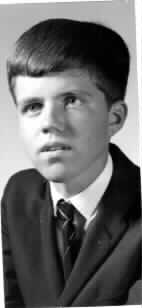|
When the meaning & purpose of mania are understood & accepted, then long-lasting healing can occurEdward Whitney, M.D.A Personal Journey & HealingThe following is the introduction to the book MANIA written by my brother, Medical Doctor and Epidemiologist Ed Whitney, MD, MSPH, whose spiritual emergency started him down the path to total healing. Soon it will be available as an Ebook, and also as a hard copy with Publish On Demand. 
No account of mania is complete without an emphasis on the meaning that the episode has for the individual going through it. Bipolar disorder cannot be adequately described only in terms of biology and brain chemistry. When the meaning and purpose of
mania
are understood and accepted, then long-lasting healing can occur. INTRODUCTIONCertifiable lunatics are ideally suited for two occupations: radio talk show host and writer of books on how to change the world. As the holder of a lunacy certificate from one of the most prestigious mental health units on the California coast, I have opportunities galore in mass communications. Because the written word comes to me more easily than the spoken, I've decided to opt for writing. Bipolar disorder, also known as manic-depressive illness, is my subject. Twice in two months in 1994 I was hospitalized in the midst of extraordinary states of consciousness known as manic episodes. I'm writing as a patient and not as a doctor, and therefore I feel absolved of many of the responsibilities that would apply if I were pretending to give medical or psychiatric advice. Much of what I say will be extremely critical of psychiatrists, not only of the ones who treated me but also of the entire psychiatric specialty and its mindset. To be sure, many of the attacks on psychiatry have been unjust, accusing its practitioners of being coercive fascists, fake (or witch) doctors, drug pushers, mind destroyers, and worse. Although I write with considerable anger against psychiatrists, I see their shortcomings as due not to any evil intentions on their part, but due to their education. They act the way they do because they have received modern medical educations, and they are only trying to be the best doctors they can be. College and medical school have taught them to think about human experience in ways that grow out of the history of our culture, and we cannot criticize them without examining ourselves and our assumptions about what it means to be a human being. 
I myself received one of these educations, and even as I speak out against their practices, I think of psychiatrists as colleagues, and I appeal to them to begin to think seriously about the ways we were all led to act and think by those who taught us how to be physicians. I nearly did not survive my experience, and much of my anger is directed at the actions of my doctors, whose efforts were much more destructive than helpful. I hold them accountable for their allegiance to a way of thinking that almost destroyed me and which they have been reluctant to examine critically. Doctors are taught to recognize and treat disease, and because psychiatrists have a lot invested in thinking of themselves as doctors, they have a lot invested in seeing many kinds of human experience as evidence of disease. Their mentors in training taught them to think in terms of medical illness, to make diagnoses and to prescribe treatments for the conditions brought before them, and in doing what they do, they are trying to live up to what they see as the expectations others have of them. Perhaps this is true of all physicians; they know that they are expected to say certain things and do certain things, and they may end up acting out their roles so completely that they cease to see the human beings in front of them except through the filters that their training has placed before their eyes. We hear a great deal today about the way that systems of managed care are interfering with the doctor-patient relationship, but that relationship is never really between just the doctor and the patient. For doctors face the necessity of paying attention to two kinds of relationship, one with their patients and one with their profession. Even if we took Shakespeare's advice and killed all the lawyers, even if all the insurance companies and HMOs were cast into the lake of fire and utterly consumed by the worm that dieth not, this dual relationship would remain. When we are alone in our offices with our patients, our old teachers, our colleagues, and our professional societies are with us as secret monitors of the interaction. We want to be responsible to both our visible patients and our invisible observers, and most of the time, we hope, there will be no conflict between the two loyalties. Sometimes, though, the loyalty to the profession overshadows the loyalty to the patient. The patient becomes the variable that is expected to measure up to the expectations of the doctor rather than the other way around. The way that doctors talk gives subtle evidence of this reversal of priorities. Commonly, for example, doctors will discuss cases by saying, "The patient failed treatments X, Y, and Z." The treatment is the standard, and the patient either does or does not measure up to it. Too easily we forget that patients don't fail treatments; treatments fail patients (as in my mania). They, and not the professional care they receive, are the proper standard by which everything else should be measured. Medicine represents itself as being scientific, and uses this to distinguish it from other approaches to human needs and human distress. Some of what is called "science," though, might better be called "technology assessment." Science is a search for explanations, asking how things in nature are brought about. How does a normal cell become cancerous? How does the AIDS virus destroy the immune system? Technology assessment is concerned with whether and how well human inventions do the jobs for which they are designed. Do antiviral drugs delay the onset of AIDS? How well does estrogen treatment prevent bone loss after menopause? The fundamental difference between science and technology assessment is the relationship to human needs and desires. Cells in the colon become malignant in the way that they actually do, not in the way we want them to. HIV attaches itself to particular molecules on the surfaces of immune cells whether we like it or not. That's science; it tries to describe what happens without trying to decide whether it is good or bad. Technology assessment, though, must make this distinction all the time. That means that whether we do or do not like a technology has a great deal to do with the issues at hand. Not only the inventors and appliers, but also the recipients of the technology are entitled to opinions. Patients are in no position to say how a drug acts on cell membranes, or even whether bone marrow transplants prolong survival in breast cancer; specialists, not patients, are qualified to have opinions on that. But patients can say, "This makes me feel better" or "This drug is lousy for me." They, not the specialists, are the authorities here. Astonishing but true: the above is not self evident to many doctors. I have had patients tell me that they had tried to tell their doctors, "This medicine doesn't work," only to be told, "Oh yes it does; you just don't appreciate it." I've been guilty of doing exactly this on more than one occasion, and when I've done it, my motives have been fear and shame. Feeling threatened and attacked, I was often ashamed of not succeeding as a doctor. I didn't know everything and I couldn't do everything. I wasn't God. It was, as the psychiatrists say, "sufficiently severe to cause marked impairment in occupational functioning or in usual social activities." But not a day has gone by when I have not been deeply grateful for the episode and its aftermath. If ever there was an occupational functioning that needed to be disrupted, it was mine at the time of my madness. It says a great deal about our values that "occupational functioning" is given such a status of sacredness, as if its disruption were the most dreadful thing in the universe. Perhaps it is, but deciding so is a value judgment and not a scientific one. Psychiatrists do a poor job of distinguishing between the two, and patients pay the price for their confusion. Psychiatrists have convinced themselves that they have achieved a scientific understanding of mania, and that they are well qualified to treat it as a medical disease. They will not be amused by what I am going to say. My belief is that they do not understand it nearly as well as they claim to, and that they will not begin to understand it until they relate to it first as a human experience. This means that it is, above all else, an experience concerned with two categories of question that science cannot address: purpose and meaning. Psychiatrists have been led (or coerced) into pledging greater allegiance to issues that science can address than to issues that it cannot. This means that a process driven by intention and by significance is outside the scope of their specialty. Science maintains its integrity by declining to consider questions that are outside its domains of inquiry. Psychiatry, in striving to become scientific, has devalued meaning and purpose and has forgotten how to navigate the strange landscape of the unconscious mind. Pharmacologic abatement of symptoms has become the bread and butter of psychiatry. This is a great loss for which patients suffer, and it needs to change. I am alive today because a friend of mine, a man with no college degree but with a lot of life experience, watched me go through the manic experience and told me, "This all happened for a reason, Ed." I am able to write this account because people who knew and loved me told me that I was not crazy. I survived this crisis because I found a maverick psychiatrist who accepts the reality of the spiritual dimensions of human experience and the existence of higher, invisible orders of being in the universe. All of these assertions will be documented in this story. I also believe that I survived (sorry, can't document it) because there actually is another order of being in the universe, an infinitely loving and mysterious God (albeit with a rather odd sense of humor) who was present and protecting me the whole time that I was helpless. The reader can accept or reject this last claim, and either is OK with me. But I will be saddened if those who read it come away thinking that manic-depressive illness is nothing but an inherited disorder of brain chemistry that can all be explained by the
neurosciences.
What I am proposing is that mania is essentially a healing process, and that the "disorder" that it is attempting to heal is shame-- or rather, shame, fear, and envy. The difficult thing is to trust the manic process, because it can get extremely scary for those who are witnessing it, and there are moments when it is terrifying from the inside, too. Unfortunately, psychiatry does not trust mania to accomplish its purpose. When mania's mission is thwarted, the need arises to try again, this time harder. Mania then becomes a recurrent condition with a worsening prognosis. To psychiatrists, this is the "natural history" of the condition, which exists independently of them and their responses to it. Because I am claiming that mania is a crisis of meaning, and because meaning is generated through interactions with others, I assert that the responses of others, including psychiatrists, are part of the "natural history" of manic-depressive illness. Psychiatrists do not just describe objectively the course of bipolar disorder; they participate, through the way they respond to it and through the meanings they attach to its manifestations, in creating the "natural history" of the phenomenon they think they are scientifically describing. If they treat it as meaningless, they can induce a sense of futility in their patients; nothing is more depressing than the suggestion that an ordeal serves no purpose. Psychiatrists pay scant attention to religion and spirituality in the lives of their patients. Their devaluation of spirituality, and their tendency to see intense religious experience as pathological, has serious consequences for those who come under their care; psychiatrists can harm their patients if they fail to appreciate the intensity with which people can attempt to heal themselves through creating religious meaning for their lives. Maybe radiologists can get away with ignoring religion but psychiatrists cannot. For a century they have assumed without question that all religious experience is based on an illusion, and that those who think that they are having encounters with the presence of God are suffering from mental disorders. With respect to the latter, psychiatrists are in good company, including that of many adherents of mainstream religious denominations. The permanent disappearance of God is taken for granted by the majority of educated persons of our time.
My main purpose, though, is to give the reader a vicarious experience of mania and an outline of the structure of the manic experience as I have observed it from the inside. Many books have been recently written by people who have experiences severe depression, but self reports of mania have been fewer in number. I can readily identify with the accounts that I have read; there seem to be some universal features of manic functioning that unite all of us maniacs into a fellowship. What has not been emphasized in the accounts I have seen is the function of mania, that it is trying to do something for the person having the experience. It is trying to deliver the person from shame and fear that have been dwelling deep inside the soul for years. Logic and reason have proven powerless to dislodge these core organizers of experience, which were embedded in the inner recesses of the unconscious long before formal reasoning skills were developed. These skills were therefore organized under the influence of shame and mistrust, and they must allow themselves to be temporarily dissolved before they can be released from the principles that so deeply influenced their development. Mania, which speaks a non-rational language, has the potential to deal with phenomena that are not rational in nature. No one considers it crazy to speak French in Paris, and we (and the French) consider it boorish for Americans to shout and holler and wonder out loud what the hell is the matter with these goddamn Frogs that they can't speak English. Mania speaks Soulish and Spiritualese in communicating with the spirits of death and despair; knowing the language of cosmic love and divine grace, it is capable of accomplishing what rational language cannot, provided that it is given a chance and some support to do its work. There is no point in getting all bent out of shape over the fact that those stupid Spirits won't listen to reason. Well, reason won't listen to them, either. Our natures are divided, and they have been for centuries. The entire modern world faces a crisis of meaning, and one of the reasons that mania spins out of control and becomes cosmic is that it is trying to heal not only the split within the self, but the split in the world.
Psychiatrists, then, are part of the audience I'm hoping to reach with this book. There are still psychiatrists who care about the importance of doing therapy, and I want to offer them some ideas that might help them reach their manic-depressive patients. To them (and to other therapists) I want to offer encouragement that therapy alone can work miracles, but you need to have the belief that mania has a structure, and calling it a "disorder" will not help you find it. There is something systematic about the way mania operates. It is nowhere near as chaotic as it appears on the outside. Mania displays patterns that allow it to be recognized and diagnosed; this means that it is much more ordered than commonly recognized. It has both rhyme and reason. But these are visible only from the inside. Casting some light on mania's systematic operation is the intention of this narrative. Mania is a sign of something gone amiss; on that point I have no dispute with psychiatrists. They work with a paradigm of mania as treatable illness, caused by an inherited defect in brain chemistry for which patient and family cannot be blamed. I am here proposing a paradigm of mania as correctable error, expressing an acquired bias in thought and perception which the patient and family created together, but for which no blame need be assigned. Perhaps there is no stigma in having an illness, but there ought to be no stigma either in having wrongly understood the world from before the age of six. It is a well-known fact of human development that most of the core beliefs that serve as organizing principles of our thoughts and perceptions are internalized before we have the capacity to examine them rationally and decide whether to accept them or not. Mania can turn our worlds inside out, seeking to alter deeply embedded generalizations about how the world works. This process can be frightening, and fear is always made worse when we do not understand what is going on. Friends and families of patients are also part of the public I want to reach. However crazy your loved one may be talking and acting, there is something going on inside that needs to be supported. Support is the magical potion that you can offer. "Support" is kind of a nebulous term, and it can manifest in different ways at different phases of the psychotic process. The person you care about will not be making much sense at times, but if you know that there is a positive intent behind all of the wild behavior, you will be able to respond with messages that will help ensure a good outcome. It is my belief, based on the experiences I have had with madness, that there is an underlying sanity to it all which is deeper and more real than the madness that so dramatically grabs our attention. If we do not understand something, we are likely to respond fearfully to it. I want this book to decrease the fear and increase the understanding of the manic process. Manic-depressive patients will have to decide for themselves whether or not this book is relevant to their experiences. We have had wild changes in emotional state and delusions of grandeur that we later feel horrified by; we have been sure that we had discovered the deepest secrets of the universe and have had to deal with the fact that our momentous discoveries make little or no sense later on. If what I say seems untrue to your experience, then obviously your sense of truth is your guide. Brain biology is indeed one of the variables we all need to deal with. I once volunteered for a study on brain physiology in bipolar disorder, something I would not have done if I had an anti-scientific axe to grind. Lithium has saved too many lives for me to want to attack it. Anti-drug dogmatism does exist, and is at least as dangerous and unethical as anything I will be criticizing. We patients are the experts in technology assessment as far as our own needs are concerned. But if medication just doesn't work for you, and if you feel sure that there has to be another way to understand your experiences, then I want to encourage you to continue your search. I am suggesting that we do not have these experiences in vain, but for a purpose; to deny this seems to me a formula for despair. Finally, it would give me great satisfaction if this book stirs some people to think about God. Pious people will find it horribly blasphemous and blasphemous people will find it insufferably pious, and at this moment I'm cackling and rubbing my hands in anticipation of annoying the dickens out of both. The center of this story is of a series of visionary experiences I had between March and July 1994, and of the aftermath of those visions. If they are any crazier than what some premillennial Christians are saying today, then I would like to know how, so that I can enter my vision of things in the End Times Lunacy Sweepstakes Contest. If they are saner, then I want to use that sanity as evidence to support my claim that the entire world is in the middle of a deep healing process for which we can all be grateful, even as the world is at the same time in danger of sinking into an abyss of degradation, violence, and horror. Several years after these events, the logic I used in the midst of that time is still comprehensible to me, at least in its outlines. My purpose in detailing what occurred is to bear witness to the infinite mercy of the Eternal One. I was rescued from a bottomless pit of despair by a tender grace that was greater than any I had ever conceived, and it is inconceivable to me that the mercy I received is for me alone. 
The entire world is being delivered from war between nations and from hatred between peoples. We may not be sure how to respond to what is happening. Fear and suspicion are a major part of the religious traditions of the West. We need to look at these traditions if we are to make sense of the kinds of madness we are witnessing at the end of the millennium. Psychiatry too is infected with the spirit of fear, and this leaves it poorly prepared to deal with the needs of many who are searching for spiritual sanity in an insane world. Psychiatrists need to outgrow the limitations of their medical educations if they are to be of more help than harm to people in those extreme crises of meaning known as manic episodes. photo of Dr.Ed, his sister and Mother, aug.2002, Colorado, post mania should you want to contact Ed about Mania, please write Doctor.Ed.Whitney@gmail.com We will share Chapter One in it's entirety, but the rest of the chapters will be teasers. Soon we will have the ebook ready for purchase, and the hard copies will be published soon after. Please keep tuning in for the GREAT NEWS!! In addition to writing about Mania, in 2000 the Colorado Division of Workers’ Compensation enlisted the expertise of an epidemiologist, Edward Whitney, MD, MSPH, to assist in making revisions to the guidelines. (Revisions are to take place approximately every 10 years.) “Dr. Whitney brings the dual perspective of a scientifically trained researcher who is also a medical professional, which has been extremely valuable to our work,” says Mueller. Whitney is not a voting member of the taskforce; his role is to gather, analyze, and grade relevant studies and report his findings to
the group.
Additional Articles by Dr. WhitneyThe following links will take you to some writings by Dr. Whitney that might be of interest....
Beyond Meds, and
Meta-analysis confidence intervals.
~~~~~~~~~~~~~~~~~~~~~~~~~~~~~~~~~~~ 
Bet YOU have an encouraging Mania story!!!Please share YOUR special story, or ask DR. WHITNEY a question about Mania and/or BiPolar!! and REMEMBER, your question and/or comment will become it's own URL so choose a great TITLE to your story! What Other Visitors Have SaidClick below to see contributions from other visitors to this page...
"Mania - An Alternative Paradigm"
Land of no hope Not rated yet
|





 Shame, fear, and God are what much of this book is about. There is a lot about religion, more than some readers will care for. Christianity, Judaism, Elijah the prophet, and the German philosopher
Shame, fear, and God are what much of this book is about. There is a lot about religion, more than some readers will care for. Christianity, Judaism, Elijah the prophet, and the German philosopher
 Much of what I say in this book will be whimsical, but on the issue of psychiatrists' behavior I am very serious. If I had accepted what the hospital psychiatrists told me when I was under their care, I might not have survived to write this story. I told them that I was having an intense spiritual crisis. They insisted that my insistence on this point was a denial of a biological disease and a grave prognostic sign. Not only were they not reassuring; they were positively injurious. I was the patient; I get to be the one who declares how well their approach served my needs. Their technology failed to work. I was saved by others.
Much of what I say in this book will be whimsical, but on the issue of psychiatrists' behavior I am very serious. If I had accepted what the hospital psychiatrists told me when I was under their care, I might not have survived to write this story. I told them that I was having an intense spiritual crisis. They insisted that my insistence on this point was a denial of a biological disease and a grave prognostic sign. Not only were they not reassuring; they were positively injurious. I was the patient; I get to be the one who declares how well their approach served my needs. Their technology failed to work. I was saved by others.
